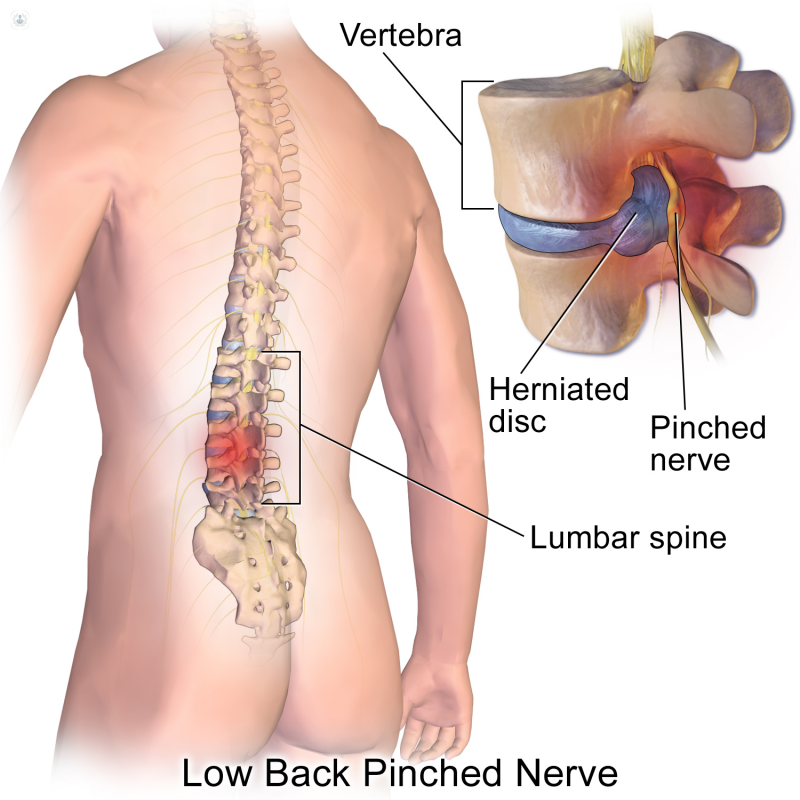You know why lumbar disc herniation occurs?
Written by:The intervertebral disc is composed of two structures within the nucleus pulposus, and the periphery and containing the nucleus pulposus, the annulus fibrosus. The hernia is caused by rupture of the fibrous ring and the output of the outer core pulposus.
In the case of lumbar disc herniation, rupture of the annulus usually occurs in the posterior-lateral portion, which is very close to the exit of the nerve root corresponding. Consequently, if the herniated volume is considerable, nerve root irritation will occur with inflammation of the same and significant pain in the form or sciatica (most often), if the hernia is in L4-L5 or L5-S1, or of cruralgia, if the hernia is L2-L3 and L3-L4.
The causes that may lead to a herniated disc are well known, but we do know that is usually associated with a weakness of osteo-ligamentous system.
Symptoms of a herniated disc
 The most common symptom is radicular pain. If the cervical hernia is a cervicobrachialgia, consisting of pain in the cervical region that extends to the top member will occur. If the hernia is back (most often), the painful event will be in the form of sciatica Cara posterior thigh and leg-shaped or cruralgia previous Cara thigh and leg.
The most common symptom is radicular pain. If the cervical hernia is a cervicobrachialgia, consisting of pain in the cervical region that extends to the top member will occur. If the hernia is back (most often), the painful event will be in the form of sciatica Cara posterior thigh and leg-shaped or cruralgia previous Cara thigh and leg.
Other symptoms such as weakness of different muscle groups, sensory disorders as numbness or tingling and alteration of bladder or rectal sphincter may occur.
Treatment of herniated disk
It goes without saying that 80% of herniated discs cause pain simply stop if the patient is subjected to conservative treatment, and only 20% of these will require surgery.
Currently, surgery for a herniated disc can be minimally invasive, and if done with surgical microscope and thoroughness the patient can be discharged within a few hours of being involved, as we have shown in the program of Ambulatory Surgery established by me at the Hospital Universitario La Paz almost two years ago.
Does the herniated disc can lead to other diseases?
Say the experts in neurosurgery , a poorly treated herniated disc can cause an overload of adjacent disc spaces and can lead to the emergence of new hernias or disc degeneration that would eventually forming osteophytes or osteoarthritis and possibly spinal stenosis, which, in turn, again cause symptoms of nerve root irritation and discomfort to the patient.


